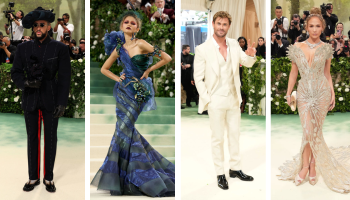By Dr. Boyce Watkins
In a recent survey taken at YourBlackWorld.com, two-thirds of the female respondents said that black women should be offended by the recent Pepsi Max Super Bowl ad featuring the violent African American female. In the survey, when asked, Do you feel that African American women should be offended by the Pepsi Max ad featuring the “angry black woman?,” 63.7 percent of the black female respondents said “yes,” while 32.4 percent of the male respondents gave the same reply.
When asked if African Americans should boycott Pepsi because of the ad, women were more than twice as likely to advocate for a boycott than men. Thirty-seven percent of all female respondents to the survey said that a boycott is necessary, while 16.2 percent of male respondents agreed.
Another question was asked about whether or not black females are more controlling than women of other races. When asked, “Do you think that black women tend to be angrier and more controlling than women of other ethnicities?”, men were nearly four times more likely than women to say “yes.” A full 27.7 percent of the male respondents said that black women are more controlling than other women, while only 7.7 percent of female respondents agreed. Roughly half of all respondents of both genders claim that race has nothing to do with it. The survey participants were those who visited the website YourBlackworld.com, which features content for an African American audience.
This survey tells us a lot about the perception of black women in America. For good reason, black women are far more sensitive to their public image than other groups. It is not uncommon to see ads in which black women are either presented as angry, hostile creatures or shown to be meaningless sex objects. This is unfortunate, since most of us know quite a few black women who have amazing gifts to share with the world.
But we’d be remiss if we didn’t also consider the obvious. For some, part of being a black woman comes with a dysfunctional way of managing pain and disappointment, starting from the missing father in the household, and taking this hostility out on the world. What some call the “strong, intelligent sistuh” can sometimes be the woman who stomps on your feelings before you get a chance to disappoint her like her father did.
Some of us seem to think that life should imitate art, and I’ve personally seen a lot of black men and women who feel obligated to replicate the imagery being presented in the media. So based on the survey results, it appears that the perception of the “angry black woman” in the Pepsi Max commercial is also shared by quite a few black men and even some women too. Those black women who think that the woman’s behavior in the commercial is somehow appealing or acceptable must quickly realize that being uptight, mean and abrasive is never an attractive quality for anyone in a relationship. I’d personally be turned off by any woman who “loved” me enough to throw a can of Pepsi at my head or shove my face into a pie. But fortunately, most of my black female family and friends would never do such a thing.
From a business perspective, it appears that Pepsi Max is trying to ensure that it’s Super Bowl ads are being discussed the following day. In that regard, they’ve succeeded. But by not releasing ads that are a bit more racially-sensitive and respectful, they may end up losing quite a few customers in the African American community. What’s even more disappointing about all this is that I wouldn’t be surprised if the advertising agency that came up with the idea for this ad was run by an African American. By giving our racial stamp of approval to major corporations, we can end up with debacles like this one. I hope Pepsi Max didn’t offend us intentionally
















